In a small patch of the ocean in the Middle East, trouble is brewing – and for one tea company halfway across the world in Reading, it’s a real cause for concern.
Products are out of stock and customers are increasingly frustrated at delays to their orders.
The cause is attacks by a group of Yemeni rebels, the Houthis, who oppose US and Israeli influence in the Middle East and a result, support Hamas in its war against Israel.
In a show of support for Hamas, they have been targeting commercial cargo ships traveling along one of the world’s busiest shipping lanes: the Red Sea.
Tea People, an award-winning fine tea social enterprise, were expecting a delivery on 13 December, but it had to be rerouted an extra 3,500 miles and barely arrived in time for the Christmas trade. Another shipment should have arrived on 15 December but has still not made it to a UK port.
Vishaka Chhetri Agarwal, chief product officer, said their costs have increased four-fold too: “For a container if you paid $1,000 to ship it from Sri Lanka to the UK, all of a sudden we have to now pay $5,000.”
And while they are trying to absorb the price increase, “if this continues for much longer, then yes we will have to increase costs”.
But it is not just Tea People who have been affected – UK consumers face a host of delays to their everyday items due to the conflict in the Red Sea.
How the Red Sea became a battleground
Global shipping has become a target during the war between Israel and Hamas which, like the Houthis, is backed by Iran.
The dramatic hijacking of a cargo ship on 19 November marked one of the most significant attacks by Yemen’s Houthis in the Red Sea.
Since then, the Iran-aligned Houthis who control much of Yemen have launched drones and ballistic missiles at more than 20 ships. They said they are targeting vessels with Israeli links or those that are sailing to Israel.
John Stawpert, from the International Chamber of Shipping, told Sky News: “Even at the start they had quite a broad definition of what Israeli-affiliated meant. What we’re seeing now is a threat that is incredibly generic and general to world trade.”
Between 19 November and 2 January, 47 incidents were reported in the Red Sea and the Gulf of Aden, according to maritime risk management group, Ambrey Analytics.
This includes the seizure of the Galaxy Leader – a Japanese-operated cargo ship linked to an Israeli company, which the Houthis captured alongside its crew in the south of the Red Sea in November.
Twelve of the 47 reported incidents related to physical damage, according to Ambrey Analytics. While the attacks have been ongoing since November, their impact is also being felt politically.
On 13 December, British warship HMS Diamond shot down an attack drone suspected of targeting commercial ships in the Red Sea. The Ministry of Defence said it was the first time in decades the Royal Navy had shot an aerial target in anger.
The US also repelled a Houthi attack on a Maersk container vessel in the Red Sea, sinking three ships and killing 10 militants on 31 December.
But the UK isn’t alone in its deterrence efforts. In December, a US warship shot down a further three drones.
In response, the US and 12 other countries including the UK formed a naval task force, Operation Prosperity Guardian, to protect civilian vessels.
Experts have warned that the situation could still escalate, as the West tries to balance deterrence with the willingness to use that capability.
Click to subscribe to the Sky News Daily wherever you get your podcasts
“The United States, as well as the rest of the international community has tried to avoid actually inflicting costs on the Houthis,” said Raphael Cohen, director of the strategy and doctrine program, RAND Project AIR FORCE.
“And there’s good reasons for that. There’s been a sort of tentative ceasefire in the Yemeni civil war. We don’t really want to reignite that.”
But, he said it remains “possible the conflict metastasizes”.
He added: “The US and its allies are torn between the objectives of clamping down on regional tensions and this in general means using less force. But on the other hand, the current status quo attacking international shipping is not acceptable.”
From cars to children’s toys: The goods being rerouted
The cost of rising tensions in the Red Sea is not just political, but commercial.
“The Houthis will bear the responsibility of the consequences should they continue to threaten lives, the global economy, and free flow of commerce in the region’s critical waterways,” the United Nations security council said in a statement on 1 December.
Next is among the latest retailers to warn stock could be delayed by the rising tensions in the stretch of water. BMW, Ikea, and Nestle are also thought to be impacted after several shipping firms – including Maersk and Hapag Lloyd – suspended sailings through the area.
Confirming delays to some of its products, IKEA said its main priority was “the safety of people working in the IKEA value chain” and it would take all the necessary precautions to keep them safe.
Around 12% of global, and 40% of Europe to Asia, trade passes through the Red Sea and Suez Canal.
Now shipping firms have rerouted via the Cape of Good Hope, a journey that takes an average of 10 days longer and costs around £1.6m more in fuel and other costs.
Around 300 ships have been rerouted so far, according to data from Windward, a maritime AI company, 45 of which were carrying approximately £79m each in new cars from Korea and Japan.
The company said approximately £3.55bn worth of new cars have been sent on the longer, more costly route, and found an average price increase for each individual car as a result to be £866.
Approximately 48% of Europe’s toys come through this route too, said Ami Daniel, WindWard’s founder and CEO.
“The consumer goods are taking the biggest hit – and when I say consumer goods, these are your IKEA tables, your toys for your kids and everything you buy in the shop.”
The unfolding conflict is also personal for Mr Daniel – he was on a vessel that was hit by a missile off the coast of Lebanon in 2008. Four of his Israeli Navy shipmates died and 12 were wounded.
“I absolutely know what it is like to be on the end of that missile,” he told Sky News. “These missiles can absolutely drown vessels and cause the death of seafarers and captains.”
Could trade stop using the Red Sea entirely?
Mr Stawpert, the International Chamber of Shipping’s senior manager for environment and trade, says there is a risk of “serious casualties”, but it is unlikely to turn into a scenario where no trade at all is using the route.
“Shipping is very, very resilient and we’ve faced lots of security threats before,” he said. “Shipping always manages to find a way through.”
But these larger commercial shipping containers are likely to be diverting because “big ships present a much more viable target than a lower free board ship like [an oil] tanker.”
In July 2021 a container ship was wedged in the Suez Canal for almost a week, dramatically disrupting global trade. But Mr Stawpert says this level of shutdown is unlikely to be seen again.
“You will see an impact but it won’t be as profound as the Evergiven. At the same time, it’s important to recognise that without that control your prices will go up – it’s a vital trade line between two absolutely enormous markets.
“And uncertainty creates costs.”
The Data and Forensics team is a multi-skilled unit dedicated to providing transparent journalism from Sky News. We gather, analyse and visualise data to tell data-driven stories. We combine traditional reporting skills with advanced analysis of satellite images, social media and other open source information. Through multimedia storytelling we aim to better explain the world while also showing how our journalism is done.
Data And Forensics – The Latest News from the UK and Around the World | Sky News
Sky News – First for Breaking News, video, headlines, analysis and top stories from business, politics, entertainment and more in the UK and worldwide.



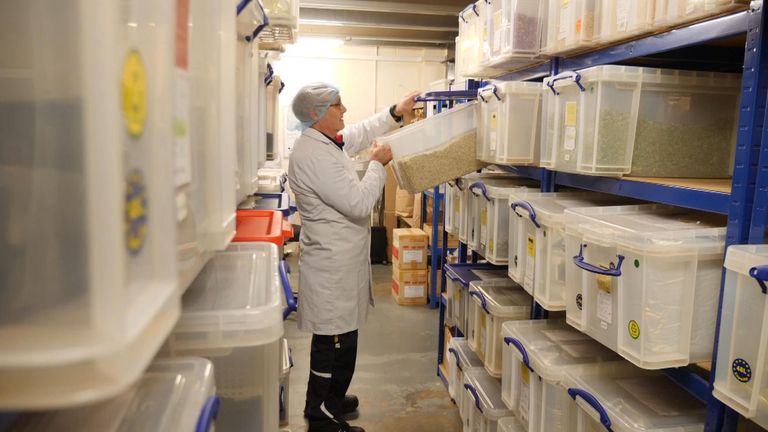
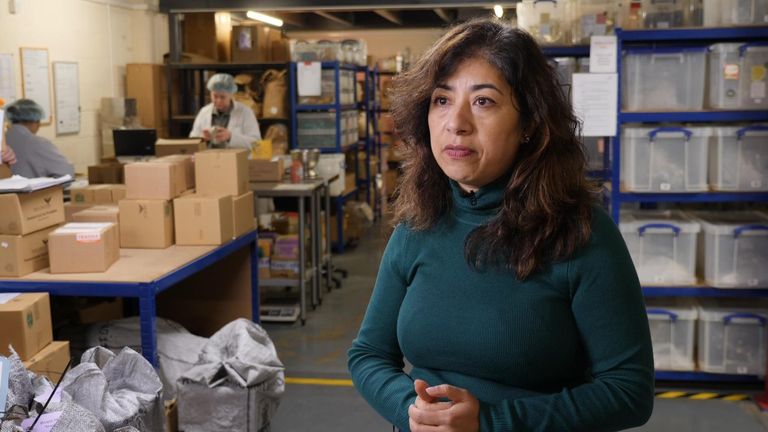
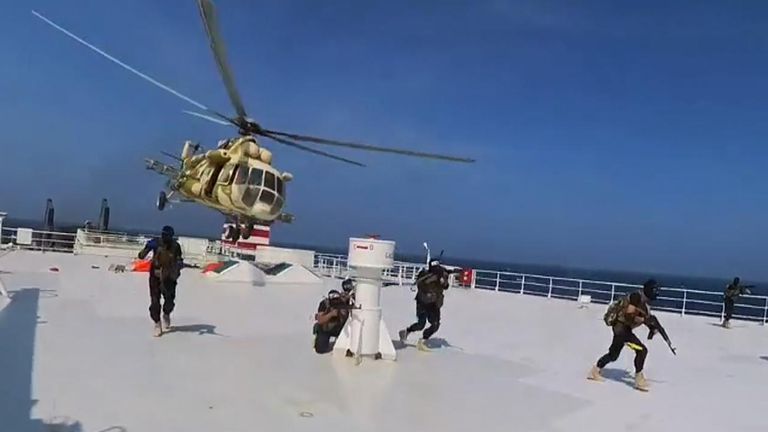
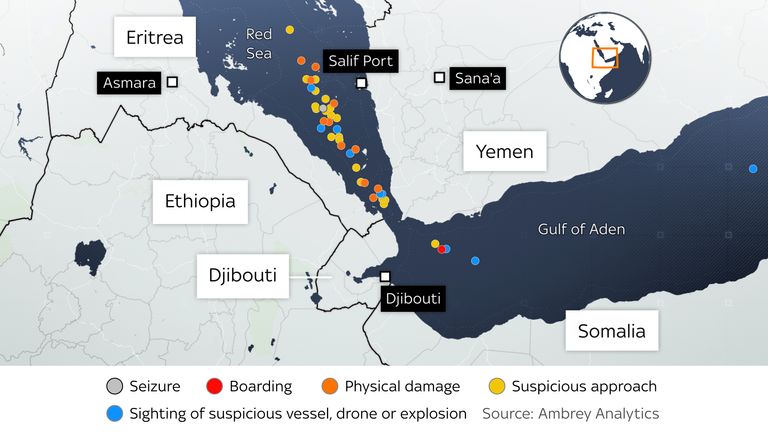
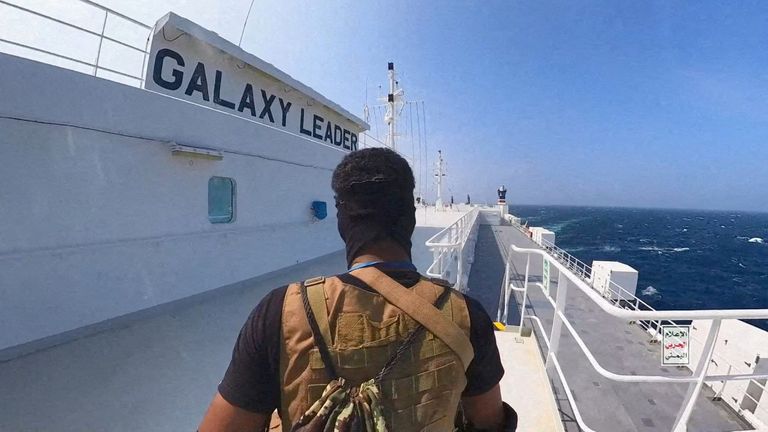
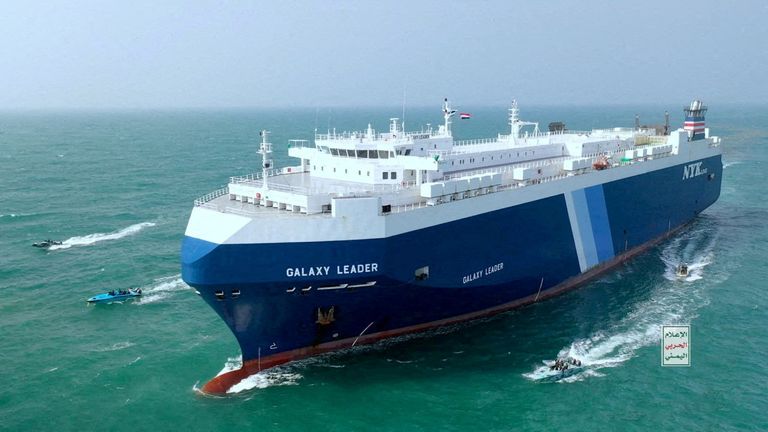
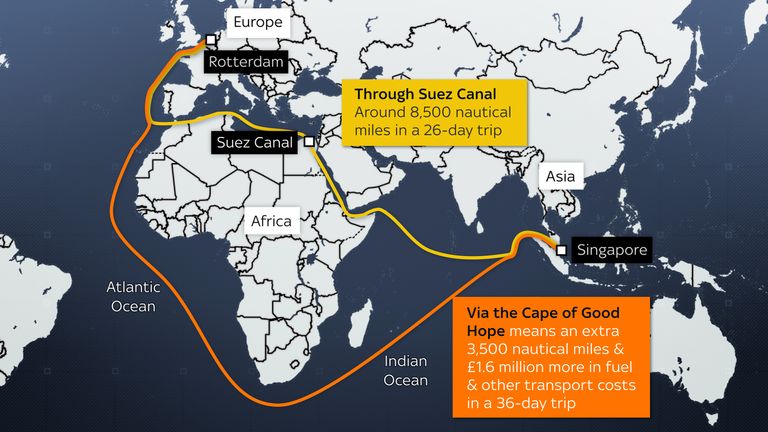
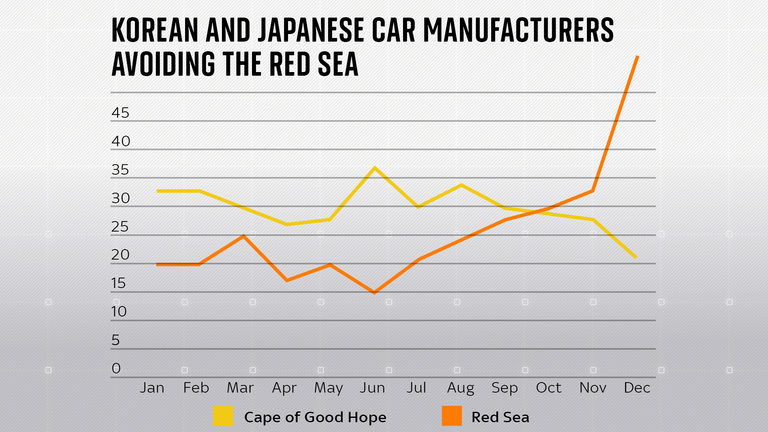
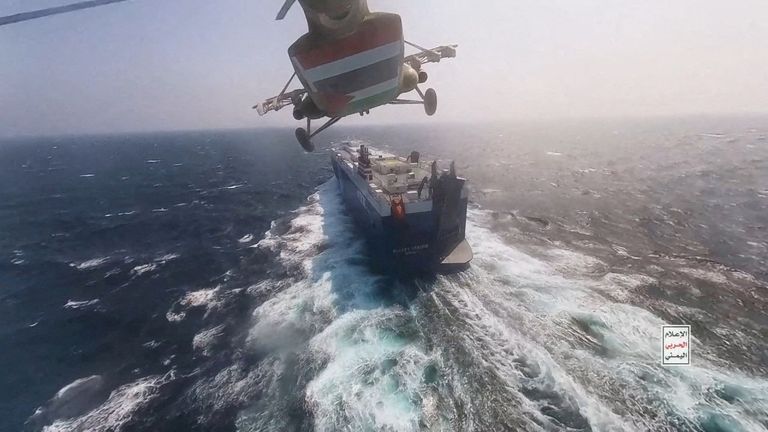
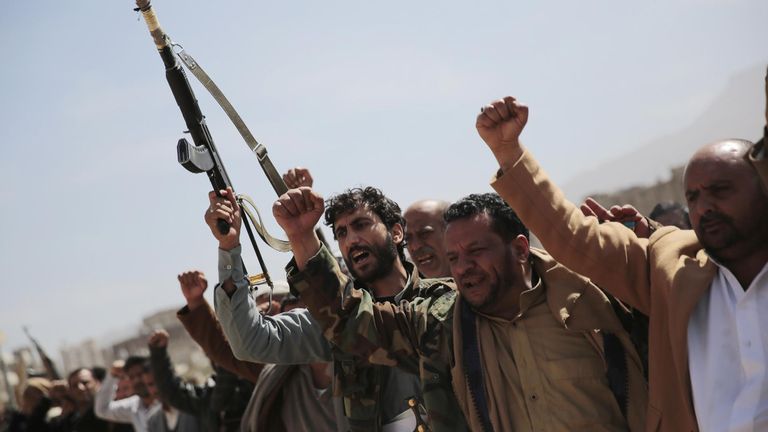






![Business tycoon in Novrongo to bury late father in a car [Video]](https://ghananewss.com/storage/2023/05/business-tycoon-100x75.jpeg)








